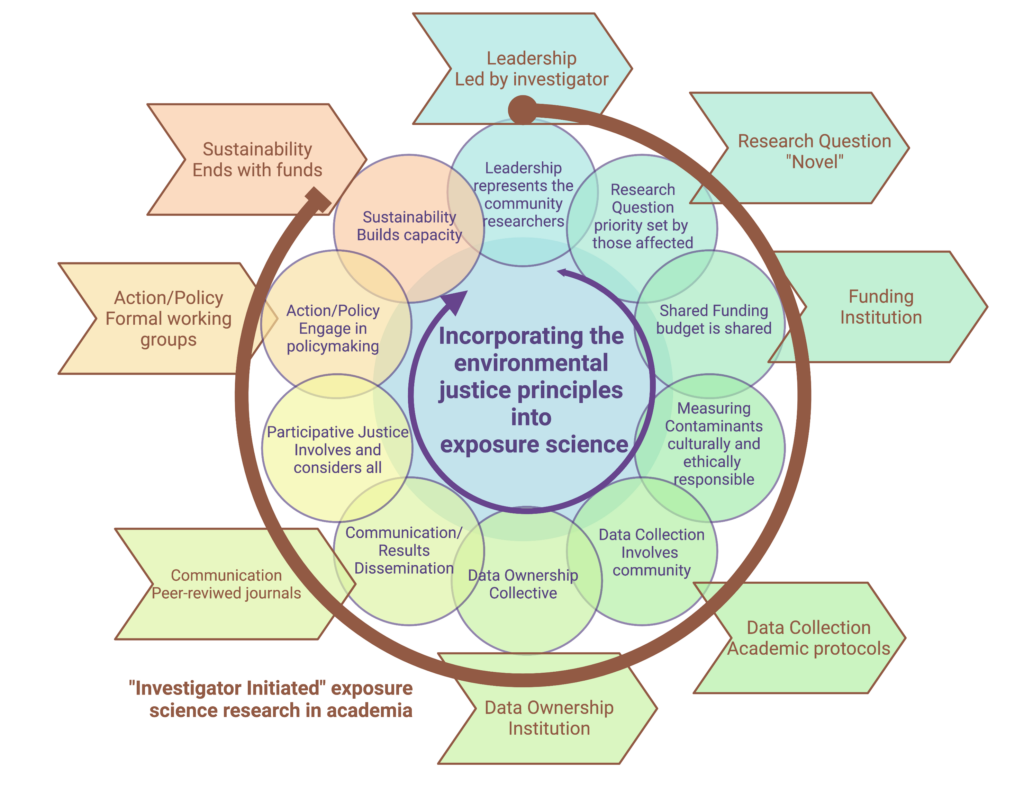
A new paper published March 8, 2022 in the Journal of Exposure Sciences and Environmental Epidemiology develops a framework to systemically apply principles of Environmental Justice to the field of exposure science. Led by USC postdoctoral research scholar Dr. Yoshira Ornelas Van Horne, and Icahn School of Medicine at Mount Sinai postdoctoral scholar Dr. Cecilia S. Alcala, this collective work calls for the move from traditional “investigator-initiated” approach to exposure sciences towards one that uplifts the knowledge and leadership of communities.

Since its inception, the environmental justice movement has led efforts to document environmental exposures and health conditions that reflect the values and needs of marginalized impacted communities. Decades of research confirm that marginalized communities are disproportionately exposed to and affected by pollution. Exposure science is a multidisciplinary field seeks to better understand health risks associated with environmental exposures to inform exposure mitigation strategies suited for the affected population. Community-driven approaches are critical to not only identify harmful exposure(s), especially as they disproportionally affect marginalized communities, but to also reduce health disparities through community-centered approaches aimed at mitigating harmful exposures.
"With this work we distill and focus on a framework that transcends specific research questions and aim to provide a path in which exposure science can actively engage to reduce environmental injustice and redefine how to conduct exposure science in a more just, inclusive, and equitable manner,” explained Dr. Ornelas Van Horne. Through an intersection lens, this framework calls for exposure scientists to engage equitably with community members and stakeholders to learn more about their experiences, involve the community in the research process, collectively determine the environmental exposure issues of highest concern for the community, and develop sustainable interventions and implementation strategies to address them.

The key components of the EJ Framework described are:
Van Horne, Y.O., Alcala, C.S., Peltier, R.E. et al. An applied environmental justice framework for exposure science. J Expo Sci Environ Epidemiol (2022). https://doi.org/10.1038/s41370-022-00422-z
Yoshira Ornelas Van Horne is supported by a Diversity Supplement through the National Institutes of Health under R01ES029598-03S1.